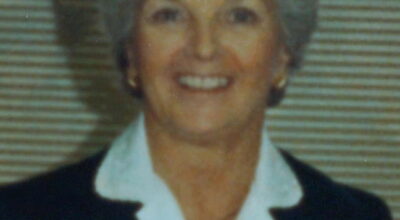GUEST COMMENTARY: Are comfortable assumptions victimizing our neighbors?
Published 1:16 pm Thursday, August 20, 2020
|
Getting your Trinity Audio player ready...
|
By Michael Andrews, Guest columnist
I couldn’t sleep last Tuesday night.
Words of a local minster spoken at Winchester’s City Commission meeting that evening kept playing in my head.
“They would be the best-dressed homeless people I have ever seen in my life,” the pastor said.
He was making public comments about people living in tents on a vacant lot in our town as the council wrestled with a proposed ordinance to ban tent living in residential neighborhoods.
The ordinance was being floated as what Mayor Ed Burtner called a “tool” to address the specific issue of suspicious comings and goings of young people on bicycles at a tent encampment off Washington Street downtown.
The mayor said he had been approached by citizens afraid of nuisances occurring at the site.
What kept me awake was the casual callousness of the reverend’s remarks, couched in certainty that he knew so well what was really going on in the lives of people living in tents.
Self-righteousness played in the tone of his comments as he continued to describe the situation.
“We are not here carte blanche against somebody in a tent that’s doing well,” he said. “I know what they are wearing on their jeans and on their shoes; these are not desperate poor people.”
The pastor asserted that visitors to the tents were young people on bicycles “enjoying the riches of drug pushing,” who cursed at members of his congregation, threatening those who were working security in the church’s nearby parking lot on Sundays.
City Commissioner Shannon Cox echoed the minister’s concerns, insisting crime in the neighborhood was spiking and people were afraid, insisting that he take action.
“I have been asking for seven weeks now,” he said, “What do I tell my neighbors?”
What shocked me was the stark vanity of the pastor’s assumptions and the willingness of our city government to entertain a narrow view, using an ordinance to legislate humanity.
Clearly, the proposed ordinance was a solution in search of a problem, an attempt to punish “others” among us, vulnerable people with no voice, without seeking to understand them.
To be fair, the pastor insisted that he and his congregation were eager to meet with the young people to have a “voice” with them and learn more about their situation, even offering to help them. He paraphrased John 12. “We will always have the poor among us,” he said.
But the characterization that vulnerable people living in tents on a vacant lot could be “doing well” and that their plight might be more understandable if they were dressed as “desperate poor people” was downright offensive.
To her credit, Debbie Fatkin, executive director of Clark County County Community Services, who was there to speak on behalf of her agency and homeless service providers, was quick to correct the pastor.
“Just because somebody is dressed nicely does not mean they are not struggling,” she said.
That exchange between the pastor and Fatkin was the crux of this important community conversation and the challenges that confront those who labor to provide a hand up to all those who struggle, including children caught in the web of drug abuse.
Anytime we become comfortable in our well-worn assumptions about life, we are in danger of victimizing somebody we see as “other.”
Such assumptions rang clearly in the pastor’s glib recitations.
“I have been here 28 years,” he insisted. “A long time. I’ve seen it. I know what it is.”
In this complex and chaotic time when we are confronted with an unrelenting epidemic and unprecedented human needs, we can’t take our singular opinions for granted.
Desires for safety and a decent quality of life vex us all regardless of outward appearances.
We need to work together to figure out life together.
There were hopeful signs at the end of the commission meeting. Several commissioners expressed interest in working together with our human service providers to learn from them and make better policy (the ordinance was voted down 3-2 by the commission).
Winchester Police Chief Kevin Palmer offered powerful perspective to the conversation when he pledged to be on call 24/7 to address neighborhood safety concerns.
“It’s not illegal to be homeless. We are here to act ethically, professionally and legally,” he told those gathered.
Hopefully, that approach will give the congregation, Cox and his neighborhood some breathing room while our professional service providers continue to seek solutions to the unyielding, complex and long-term challenges of homelessness in our community.
For the rest of us, we would do well to consider the words of Thomas Merton: “Love is our true destiny. We do not find the meaning of life by ourselves alone — we find it with another.”





